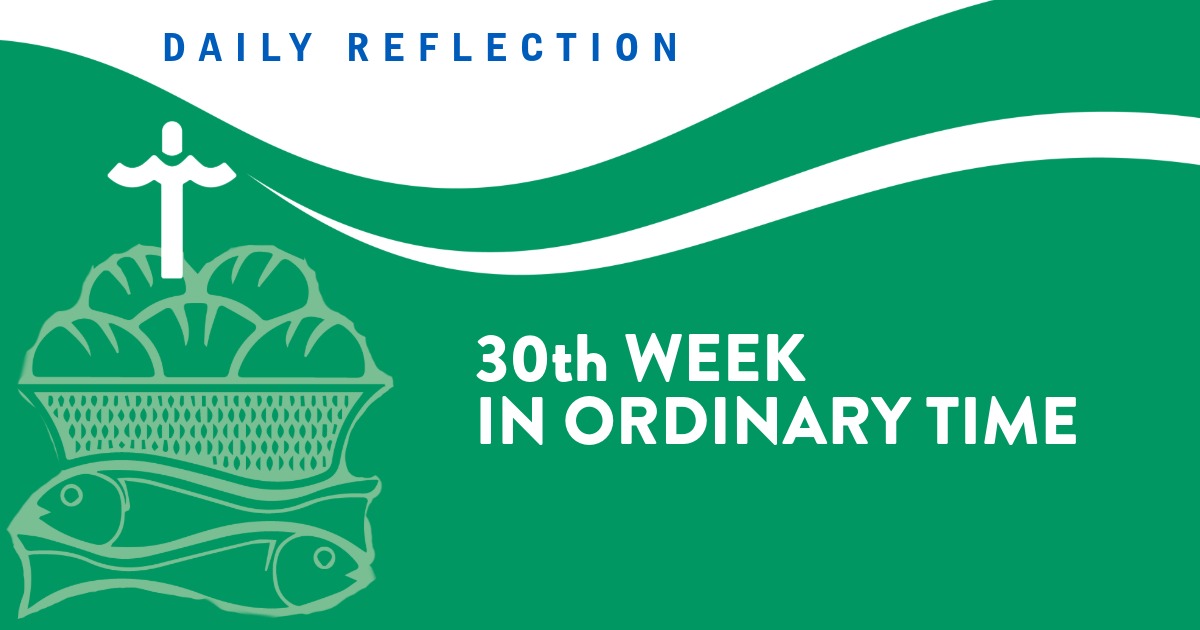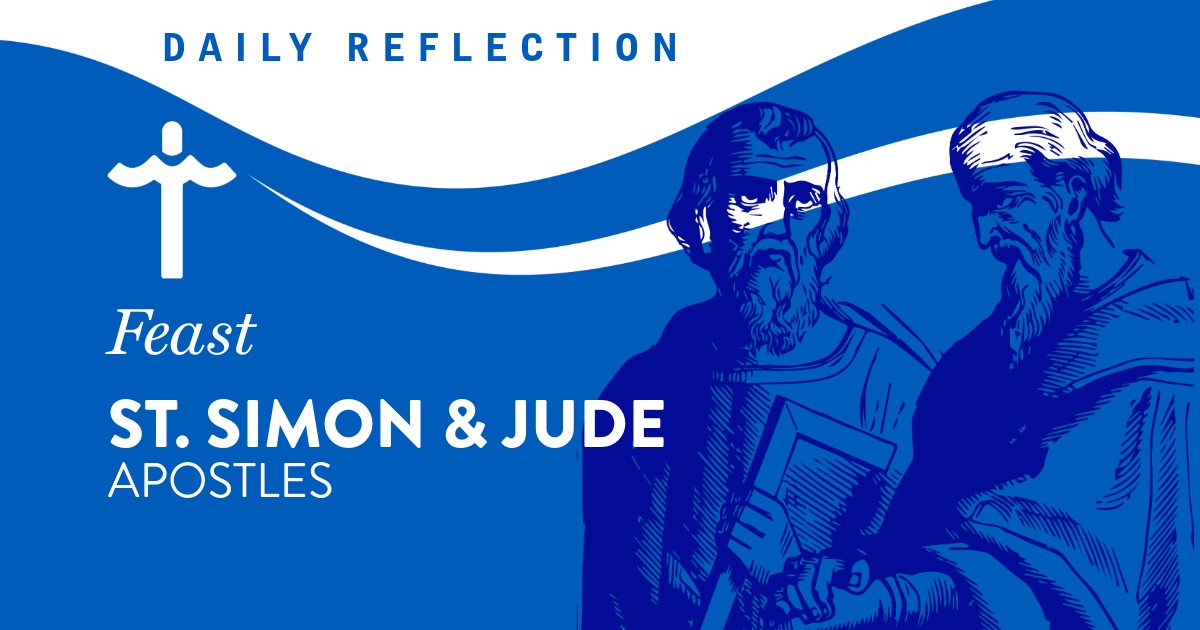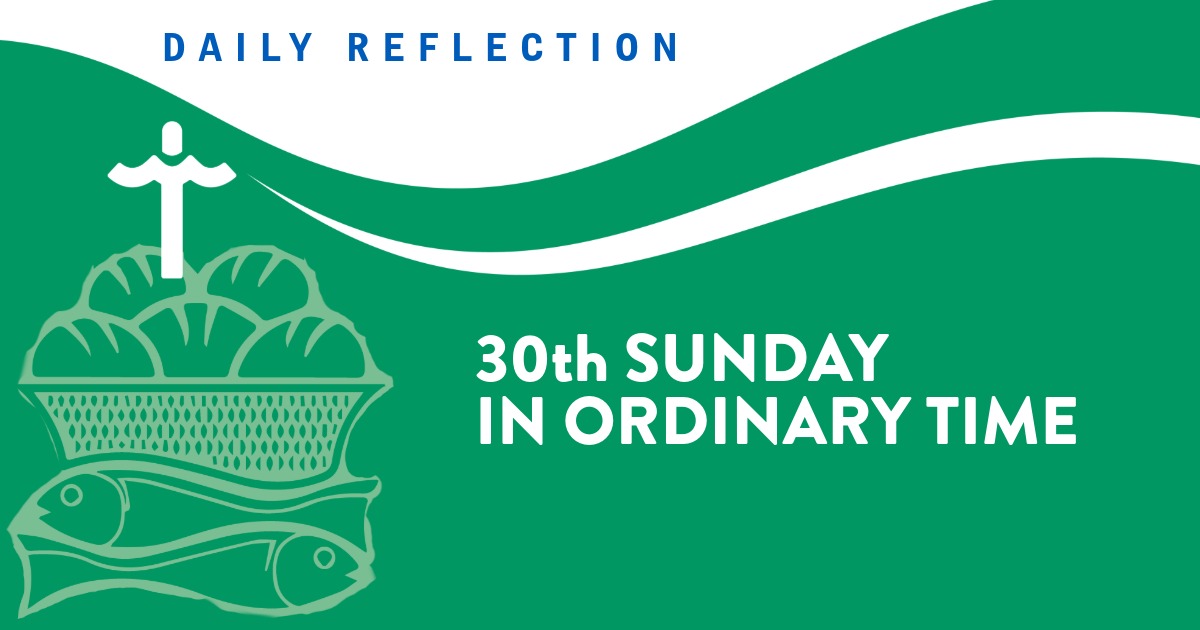Twenty–Second Sunday in Ordinary Time
Could our desire to impress others, our “power trips,” and our insistence on receiving “the honor that is our due” all come from the same root? Could their common source be the radical insecurity that comes from our awareness, so deep we may not be conscious of it, that our very existence is just an ongoing act of God? That we have no power of ourselves even to breathe, move, or think? That our life totally dependent on God’s continuing will to preserve us?
Peaceful with the truth
Sirach 3:17-29 counsels us: “Humble yourself the more, the greater you are.” Why? It is because being “great” usually consists of being, or being treated as if, in some way, we are “higher” than others. But since on the scale of being, everything we are, have, or do depends completely on the presence of God within us, “breathing into us” existence itself and the power to do with it whatever we are doing, there doesn’t seem to be much meaning in anyone’s being “higher” or greater than anyone else. Of ourselves, we can do nothing — whether by nature or by grace. The only real way to be “great” is to humble ourselves in surrender to God speaking through his Spirit and let Jesus, whose body we are, do whatever he wants to do with, in, and through us. Want to be great? Pray the WIT prayer (“Lord, do this with me, do this in me, do this through me.”)
Why does Sirach say, “Humble yourself the more, the greater you are.” First, he is talking about greatness as perceived, not necessarily as real. But in either case, the “higher” we feel ourselves to be, the scarier it can get. No one is afraid of falling off a curbstone. But walking a tightrope ninety feet above the ground, knowing there is nothing you can count on to hold you up, might stimulate some insecurity! In any position, everyone is radically insecure, but at higher levels, we feel it more. The cure is humility.
Sirach says, “Humble yourself.” Humility has been defined as “being peaceful with the truth.” Sirach is saying, “Be peaceful that you have nothing you can ultimately rely on.” What are the grounds for that peace?
God’s love. If we trust in God’s love, we have no grounds for insecurity about anything, because our security is grounded in the truth that God is love, and God loves us. And Jesus has told us not to fear. We are “home safe” with him always, “like a weaned child on its mother’s lap.
The way up is down
In Luke 14:1-14, Jesus seems to be just showing us how to avoid being embarrassed: “When you are invited by someone to a wedding banquet, do not sit in the place of honor, in case some greater dignitary has been invited… and then you would have to proceed shamefacedly to the lowest place.” But Jesus’ advice goes deeper than avoiding embarrassment. It makes us ask why anyone would want to be perceived as greater than others.
The root reason is the radical insecurity of human existence. People sometimes accuse themselves of being “proud” because they care about what others think of them or want to make an impression on people. In reality, this is not pride but insecurity. The truly proud are like the truly humble in this, that they are so confident in their value (although for totally different reasons) that they don’t need affirmation from anybody. They expect it as their due, and may get angry if it is not given, but they don’t even bother to “make a good impression.” If your net is over a hundred billion dollars, you can show up in blue jeans anywhere!
Like the humble, the truly, sinfully proud can be peaceful, but in the falsehood, not in the truth, of what they perceive themselves to be. Pride and conceit differ in this, that the conceited just think they are better than others in some respect. If they actually are, they are not conceited, just right. And if they aren’t, they are just mistaken. Fools, perhaps, but not evil. The proud, however, believe they are the criterion: that they are so good or smart that whatever they think or do is right because they think it or do it. This is to make oneself God. It is the worst of sins.
Those whose apparent pride is really insecurity feel the need to be treated as important precisely because they doubt how good they are. They seek a false peace from constant reassurance of others’ opinions of them, or from piling up achievements that are respected in their society. The only true peace they will ever find is that of the humble who are “peaceful in the truth” about themselves, whatever it is. But for this, they have to go “down” to their radical nothingness — and discover God’s love.
The ultimate — and the only — truth that lets us be peaceful in all other truths is the truth of God’s love. God’s love is not based on what we have made of ourselves, but on what, by his grace, we can make of ourselves. His love is his free and self-identifying choice to invest everything he is in what we can become. As long as we have the capacity to respond with free choices, God simply invests his gifts in us, like a “faithful steward” of his own goodness, so that we might esse et bene esse, “be and become all we can be” (St. Augustine).
With the same fidelity, as “good stewards of the manifold grace of God,” we need to “serve one another with whatever gift each… has received” and to keep “building up the body of Christ, until we… form that perfect man who is Christ come to full stature.” We do it with total trust in God’s love, confident that “the one who began a good work among you will bring it to completion by the day of Jesus Christ.” In this, there is both humility and peace.
“At home” with God
Hebrews 12:18-24 encourages us not to let the radical nothingness of our being in contrast to the All of God hold us back from seeking intimacy with him in trust:
You have not drawn near to an untouchable mountain and a blazing fire… and a voice speaking words such that those who heard begged that they be not addressed to them.
Insight: Do I measure my value by what I can do or by what God can do in me?
Initiative: Be a faithful steward: keep investing in what you and others can become.
— Fr. David M. Knight
View today’s Mass readings, Lectionary #126, on the USCCB website here
Fr. David M. Knight (1931-2021) was a priest of the Diocese of Memphis in Tennessee, a prolific writer, and a highly sought after confessor, spiritual director, and retreat master. He authored more than 40 books and hundreds of articles that focus primarily on lay spirituality and life-long spiritual growth.





0 Comments